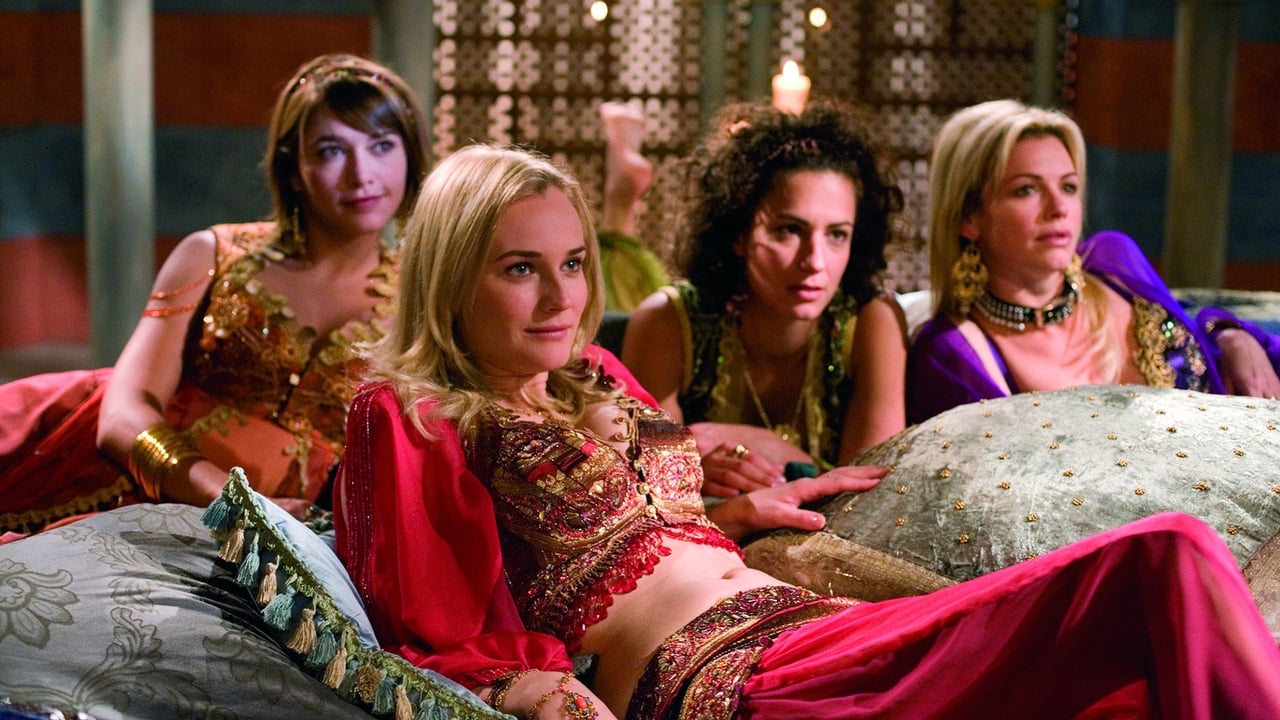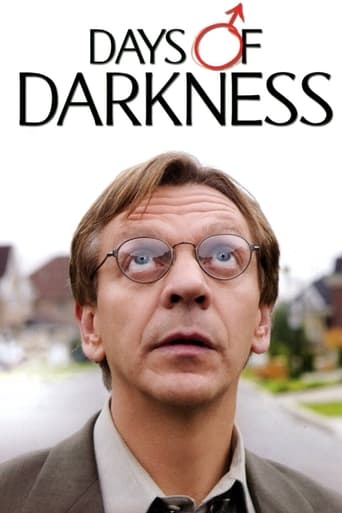

the leading man is my tpye
... View Morejust watch it!
... View MoreHorrible, fascist and poorly acted
... View MoreIt really made me laugh, but for some moments I was tearing up because I could relate so much.
... View MoreI loved the vivid social points brought up by this film. I have considered myself a great fan of Arcand since "Jesus of Montreal" in the late 1980's... that having been said, I wondered how he was going to tie the stories in this film together to complete the film. The answer is... he didn't. The ending was most likely the reason this film was screened out of Cannes in '07. The close is a non-ending, so if this is a "spoiler", sorry, but not only did it not make sense in a real-world scenario, it doesn't make sense in the film world either. The production either ran out of plot or money or both... don't expect a resolve to which you can feel satisfied. This having been said, the film up to the last thirty minutes was fun, biting and wonderful.
... View MoreOf course, if you are a person who believes our modern society is the culmination of human evolution and you are comfortable with the western way of life, you might not like this movie so much (referring to the review posted by someone from Chicoutimi). Otherwise, it has to be one of the most brilliant criticisms about the North-American way of life. Another reviewer compared it to Brazil from Gilliam, and there surely are some similarities, though Arcand does not go as far into surrealism. The cast is wonderful. All in all it is a great satire that makes you reflect on many aspects of life in our time. It is funny, but really dark at the same time. I liked it even better the second time I watched it. It just lacks a little something - maybe a stronger climax - to be a masterpiece.
... View MoreBy mid eighties, living in South America, I attended a showing of "The Decline of the American Empire" in a long (festival) cut. There were a lot of buzz about this Canadian movie; it was serious Oscar contender, had won in Cannes and so on. For about two hours, I witnesses four women talking about sex, four men talking about sex and the eight together talking about sex. All of them a bunch of intellectual college professors (with some socialist political tendencies). Against all odds and expectations, it was one of the most funny and interesting movies I ever saw.Twenty years later, the same eight characters came back for a follow up with a few new ones. It was called "The Barbarian Invasions". This time, sex was not the subject but the social environment and changes. People had matured and political tendencies too. Aside from winning the Oscar this time, it was no better but a perfect companion to the first one. Now, few years later comes "L' Age des Tenebres" (in English "The age of ignorance" or "The Time of Darkness"). It was labeled as the third part of a trilogy but it has no relation with the other two aside from one character briefly appearance.This time, we follow the story of Jean-Marc Leblanc. An underachiever public servant; married to an ambitious real estate broker who ignores him (well, mutually). Jean Marc survives his frustrations on fantasies (some of them sexual with four gorgeous women he has some kind of relation. When his wife leaves him on a job opportunity, he falls down a tries to get a grip of the real word, however things are not that easy. If you think it looks like "American Beauty" you are not completely wrong but this movie goes further and not as PC as "American Beauty" did. Well, at least there is no need to kill the main character. "L' Age des Tenebres" is coming of age (or a coming to terms) comedy about people facing reality a little too late. It falls short compared to the other two parts; even when it is probably more commercial and accessible but compared to similar attempts from other directors is really a masterpiece.
... View MoreWatched in the Toronto International Film FestivalNot having seen "The decline of the American empire" and deeply touched by "The barbarian invasions", I find "Days of darkness" (the finale of this "social comments" trilogy) interestingly different but not quite as superb as "The barbarian invasions". Not that this matters but a repeat of an Oscar for best foreign language film is unlikely.The issues tackled in "The barbarian invasions" are prolific (the French Canadian perspective, the Canadian medical system, differences in perspective across the border, friendship, social and 'moral' values, drug addiction, the financial world of today, and more). While there is an appealing sense of humour throughout that movie, it is ultimately heartrending. "Day of darkness", on the other hand, is a biting satire. There are claims that the movie transforms magically, towards the end, into a work of poignant emotion. While not entirely groundless, this is nevertheless an overstatement. The gloomy undercurrent is there right from the beginning, despite some of the hilarious touches. On the other hand, although the end is somberly pensive overall, it is not entirely devoid of the sparks of wicked satire we have witnessed throughout the movie. The story we see is markedly universal, despite being set in a slightly exotic (to the average global audience) stage of Quebec. The time frame could be futuristic but not so much that you would really notice. The protagonist you know only too well, a typical civil servant (this one a "complaint hearer") in a typical modern day environ bureaucratic government office, lifeless colleagues, aggressive-career-woman real estate agent wife, teenage daughters "who wouldn't even notice it if he drops dead", frustrating routines of daily commuting, and so on. It is almost unnecessary to say what a rich, happy hunting ground a satirist will find here. Things at which this movie pokes fun could be a mile long. These jabs range from brilliant to mediocre. And as mentioned, while you are laughing, you heart sometimes sinks.But that is only half of the movie. The other half is the protagonist's fantasies, which serve as a safety valve to keep him from going insane or maybe even becoming a psychopath (he did talk seriously about want to kill his wife at the end). The cinematic qualities of these fantasies are again uneven so that the movie sometimes drags. But the chief object of his fantasies is a muse-like figure played by beautiful Diane Kruger ("Troy", "Merry Christmas", "National Treasure"), a definite attraction of the movie. Towards the end, not even these fantasies can keep him from reaching his breaking point, when he says to hell with it all, packs a little back and goes off to a somewhat isolated, modest cottage left by his father. That is where we get the poignancy. The end however is not entirely tragic. While the object of his fantasy finally deserts him, his estranged wife and rebellious daughter drive by and drop off some of his old clothes and books, leaving a tiny ray of hope for some sort of reconciliation. But the final tragedy, not so much explicitly shown as left for the audience to reflect on, is the realization that even if he goes back to a "normal" life, nothing is really going to change. The days are indeed dark.One interesting concluding observation I would like to make, as I just watched "The Savages" the day before watching this, is that in both, a large part of the pathos comes from the helplessness and agony in watching aging parents slowly withering away in their sad remaining days. From a macro, non-personal angle, this is something inevitable for the majority of the baby boom population. Each individual case, however, hurts in its own different way as shown in these two films.
... View More